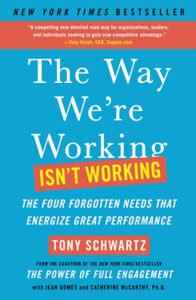|
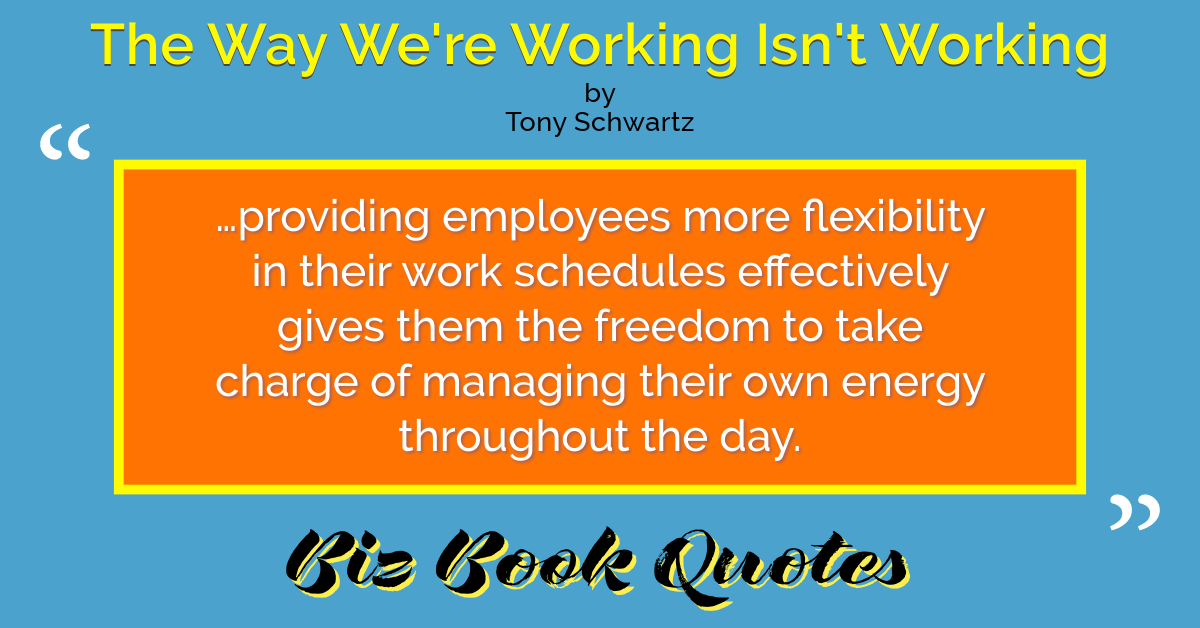
|
The Way We’re Working Isn’t Working:
…providing employees more flexibility in their work schedules effectively gives them the freedom to take charge of managing their own energy throughout the day.
|
115 |
|
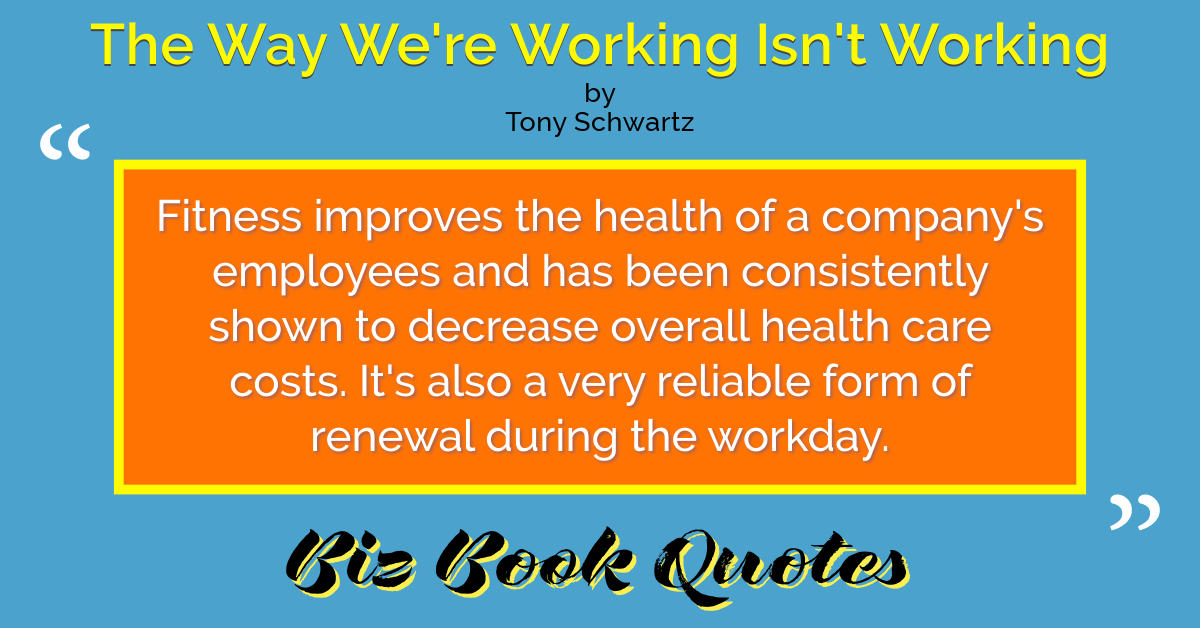
|
The Way We’re Working Isn’t Working:
Fitness improves the health of a company’s employees and has been consistently shown to decrease overall health care costs. It’s also a very reliable form of renewal during the workday.
|
115 |
|
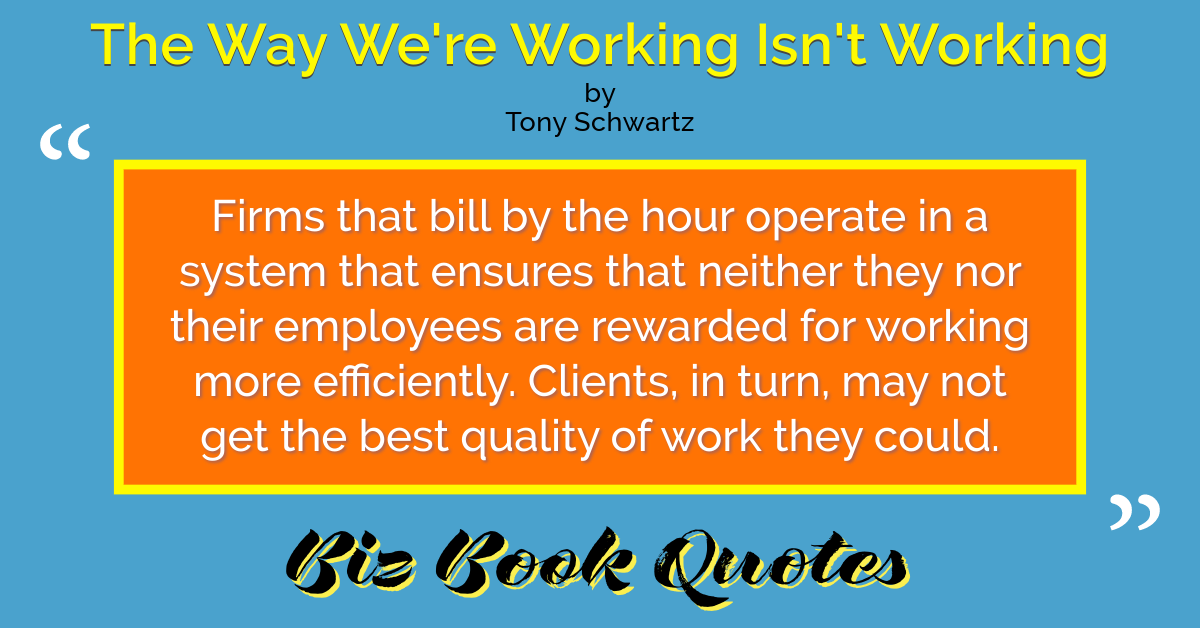
|
The Way We’re Working Isn’t Working:
Firms that bill by the hour operate in a system that ensures that neither they nor their employees are rewarded for working more efficiently. Clients, in turn, may not get the best quality of work they could.
|
116 |
|
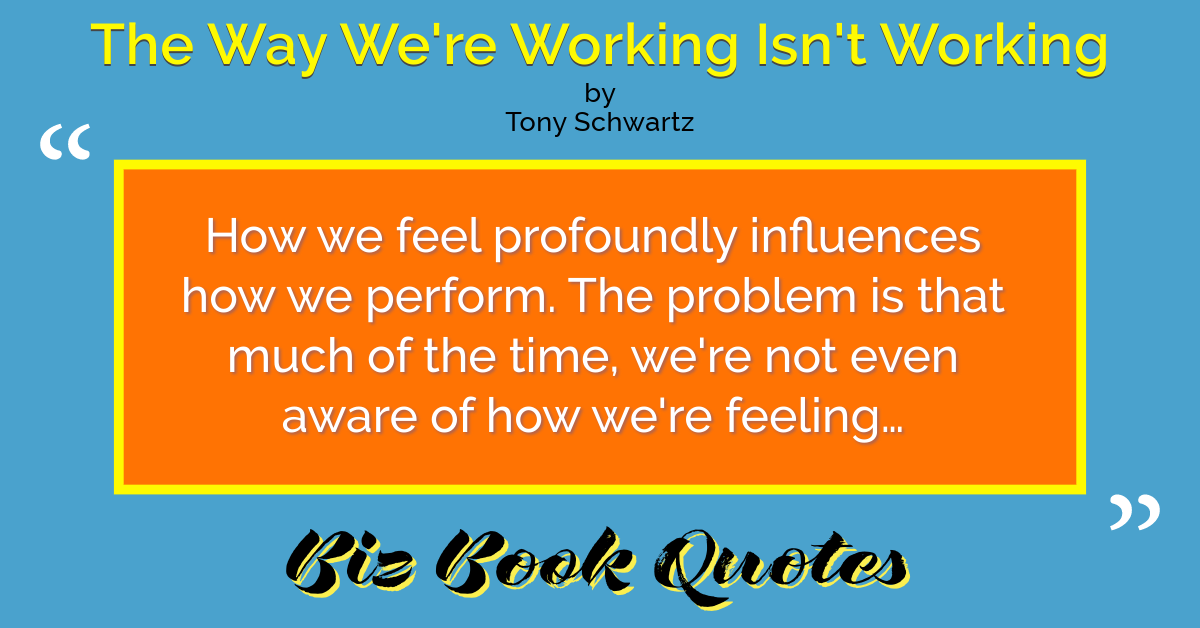
|
The Way We’re Working Isn’t Working:
How we feel profoundly influences how we perform. The problem is that much of the time, we’re not even aware of how we’re feeling…
|
123 |
|

|
The Way We’re Working Isn’t Working:
…emotions influence us, and those around us, whether we consciously recognize them or not.
|
124 |
|
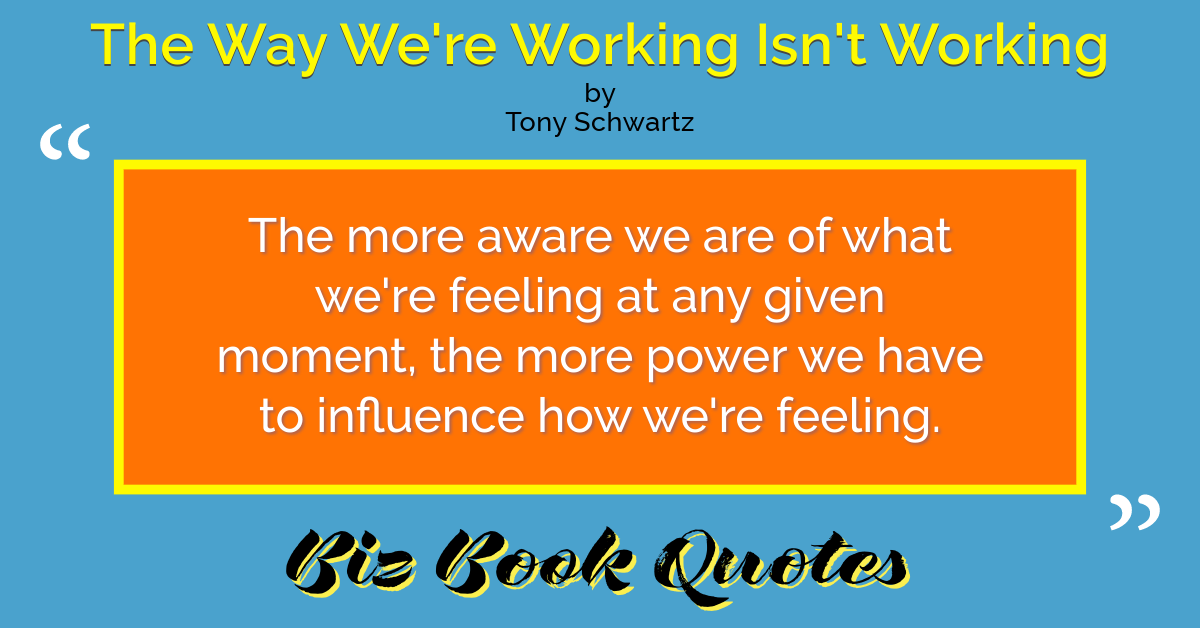
|
The Way We’re Working Isn’t Working:
The more aware we are of what we’re feeling at any given moment, the more power we have to influence how we’re feeling.
|
124 |
|

|
The Way We’re Working Isn’t Working:
Skillful management of our emotions creates the potential for better relationships for greater effectiveness at work.
|
124 |
|
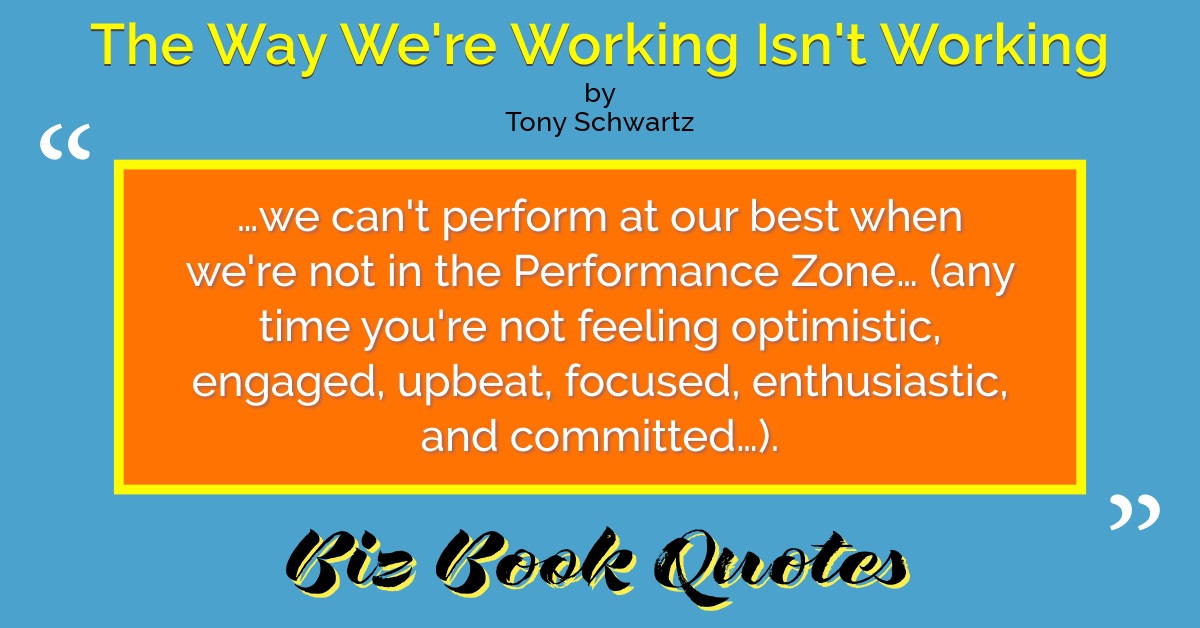
|
The Way We’re Working Isn’t Working:
…we can’t perform at our best when we’re not in the Performance Zone… (any time you’re not feeling optimistic, engaged, upbeat, focused, enthusiastic, and committed…).
|
124 |
|

|
The Way We’re Working Isn’t Working:
Many leaders still rely heavily on negative emotions to generate the results they’re after.
|
125 |
|

|
The Way We’re Working Isn’t Working:
Our bodies… don’t make the distinction between a real threat to our survival and our more everyday fears.
|
126 |
